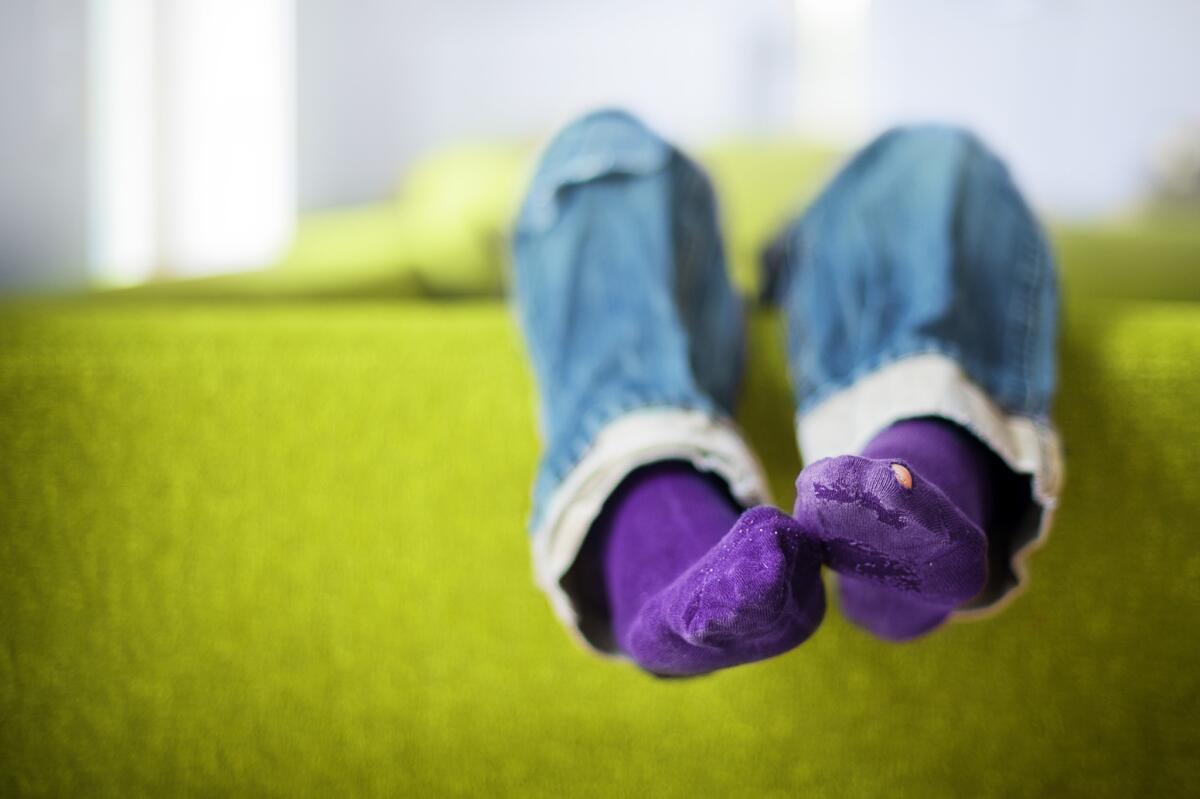postcard-from-l-a: Fifth-grader craves that rare treat: idle time

“When we leaving?” the kid asks.
“In 20 minutes,” I say.
“Do I have time not to get ready?”
That’s the conversation I had with the fifth-grader the other afternoon, the implication being that he’s constantly getting ready for the next activity and wanted a little time to not get ready, to not do anything, to do that juiciest of childhood pleasures, flop on the couch awhile and play with his elbow.
Idle time is a disappearing American luxury, along with retiree medical care and affordable college degrees. But idle time is free. It doesn’t cost anything, other than the realization that to do nothing is one of the greatest perks of all.
Author Jennifer Senior taps into the mood of many American homes when she asks: “Why is it that so many mothers and fathers experience parenthood as a kind of crisis?
“Why is raising our children filled with so much panic?” she asked in a recent TED speech on child rearing.
Until relatively recently, she noted, children worked and were considered financial assets.
“Once kids stopped working,” she says, “the economics of parenting changed. Instead of them working for us, we were working for them.
“Today, extracurricular activities are a kid’s new work,” says Senior, who writes on the topic in her new book, “All Joy and No Fun.”
Senior is right to bemoan the state of American parenting. Yet her child is only 6, so she hasn’t experienced the terror of trying to get a kid into a decent college these days, which has replaced marriage as the premier courtship of modern life.
Older parents feel as though:
• No one seems to get into schools like USC or Northwestern anymore, even the outstanding students.
• Many colleges have sold their souls, favoring richer foreign students over American applicants.
So, we all push harder at home, believing we can berate our children into better lives. And idle time — the simplest joy of childhood, the moment when the heartrate slows and the brain takes a breather — suffers a total hit.
By nature, we are not a fretful people. We are built on hope and hard work and the shimmering mirage of the American Dream.
We are built on an abiding belief in fair play and decency, and a preference for the future over the past.
But when it comes to our kids, we are increasingly bonkers.
Me, I suffer from maybe too much perspective. I have children of every age, at every stage of life. My youngest is 11. My oldest is now older than I am.
What I’ve learned over three decades of parenting is that your children are who they are. You can soft-sand the edges, you can wind them up, but you cannot turn them into different people. Some will be born to slam-dunk basketballs, some will be born with the kind of mind that easily absorbs the Pythagorean theorem.
You’re a mom and dad, not Frankenstein.
Overparenting does not change their DNA or their eye color or the sort of passion it takes to master the mandolin. All it does is make them as anxious and fretful as you are.
After multiple kids, this is my fourth time through fifth grade. I now have the basic tenets of Euclidean geometry mostly down, and I am fluent in the particulars of how malaria decimated the settlers – cold sweats, hot sweats and a general queasiness in the gut.
Most days, our 11-year-old has one to two hours of homework. There is some dawdling involved. We are all tired by 5 in the afternoon. Some nights there are ballgames as well; other nights, practice. He is not quite over-subscribed, yet some sort of deadline always looms.
“Do I have time not to get ready?”
Sorry, no.
Modern childhood is packed and getting more packed. When I was in fifth grade, boys did not have baseball seven days a week, or pitching coaches, or private batting tutors. Somehow we still managed to supply enough new talent to the major leagues.
When I was in fifth grade, the school year didn’t revolve around the standardized tests. It revolved around summer. And the tiny glories of idle time.
So, yes, I understand why fretful moms and dads see parenthood as a kind of crisis. Hot sweats, cold sweats and a general queasiness in the gut.
Caught in this parent trap, many moms and dads overparent because they don’t want their child to be the only one left behind.
“We feel like if we’re not doing everything, we’re doing nothing,” Senior noted.
Maybe that’s what it takes to produce future doctors and shortstops.
But you wonder: Will any of them ever want to be parents themselves?
More to Read
Sign up for The Wild
We’ll help you find the best places to hike, bike and run, as well as the perfect silent spots for meditation and yoga.
You may occasionally receive promotional content from the Los Angeles Times.











